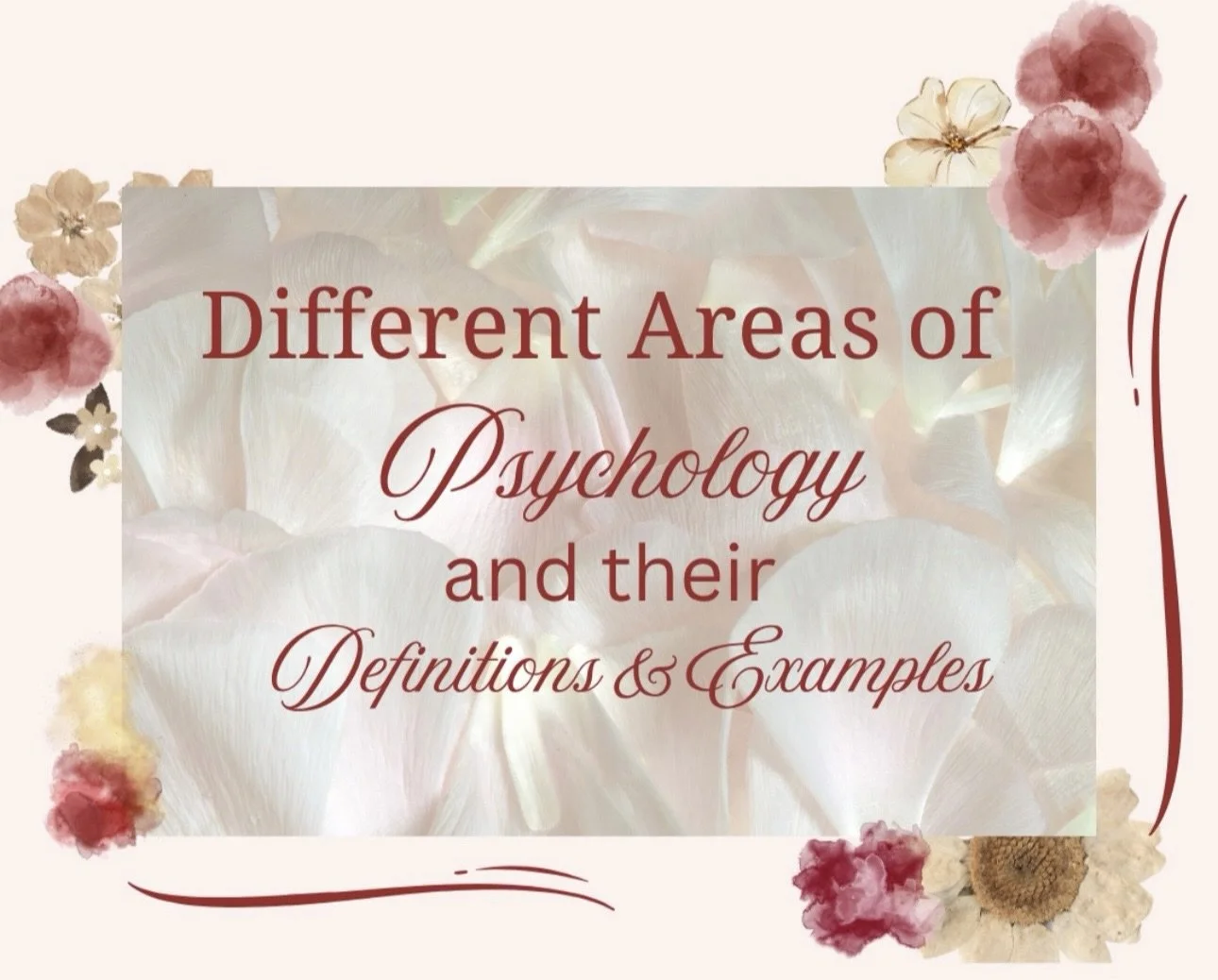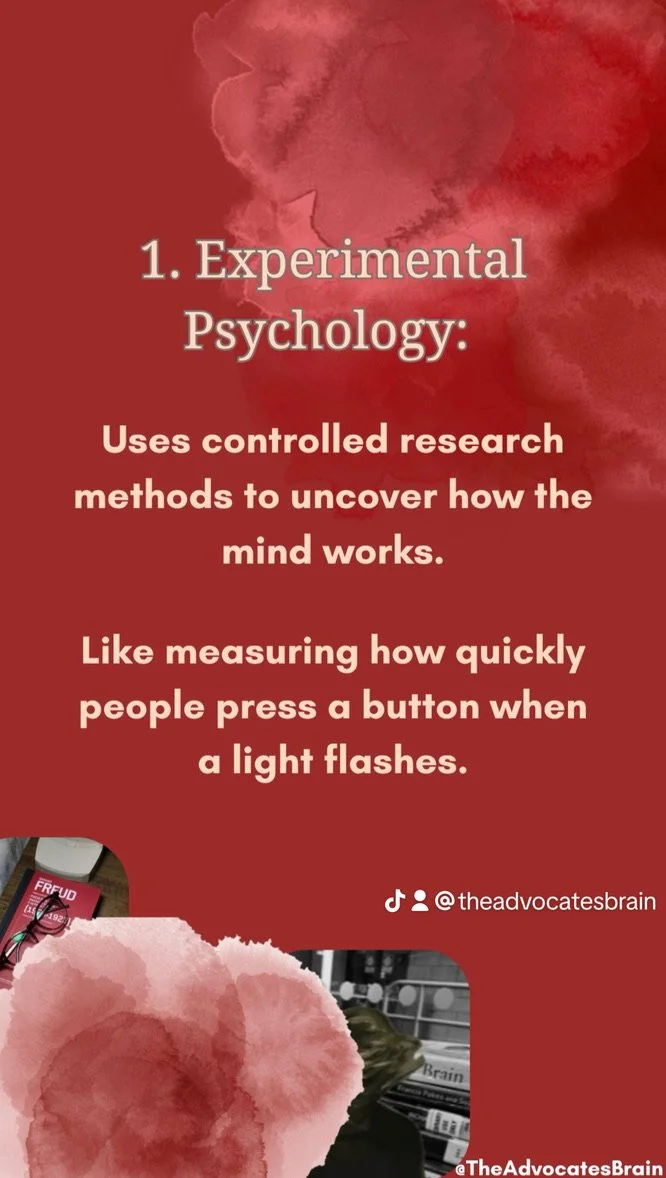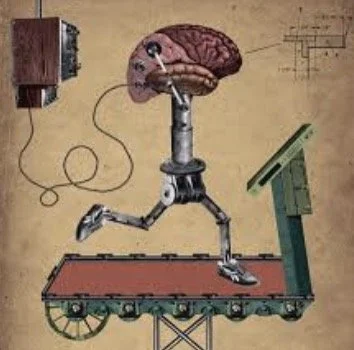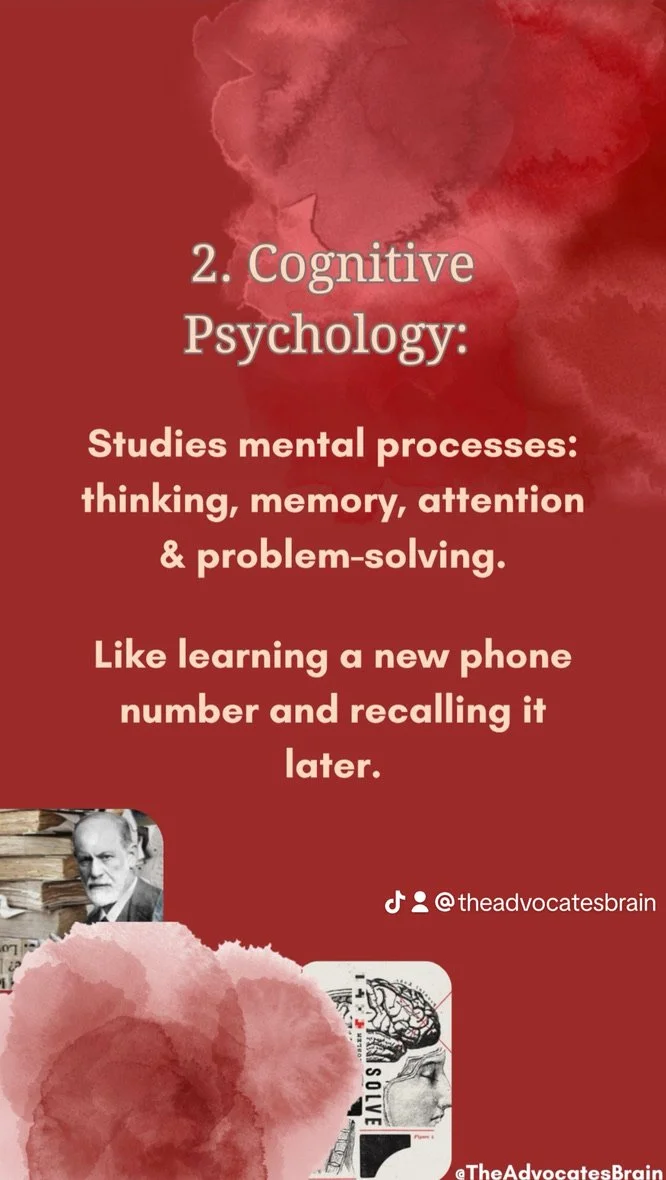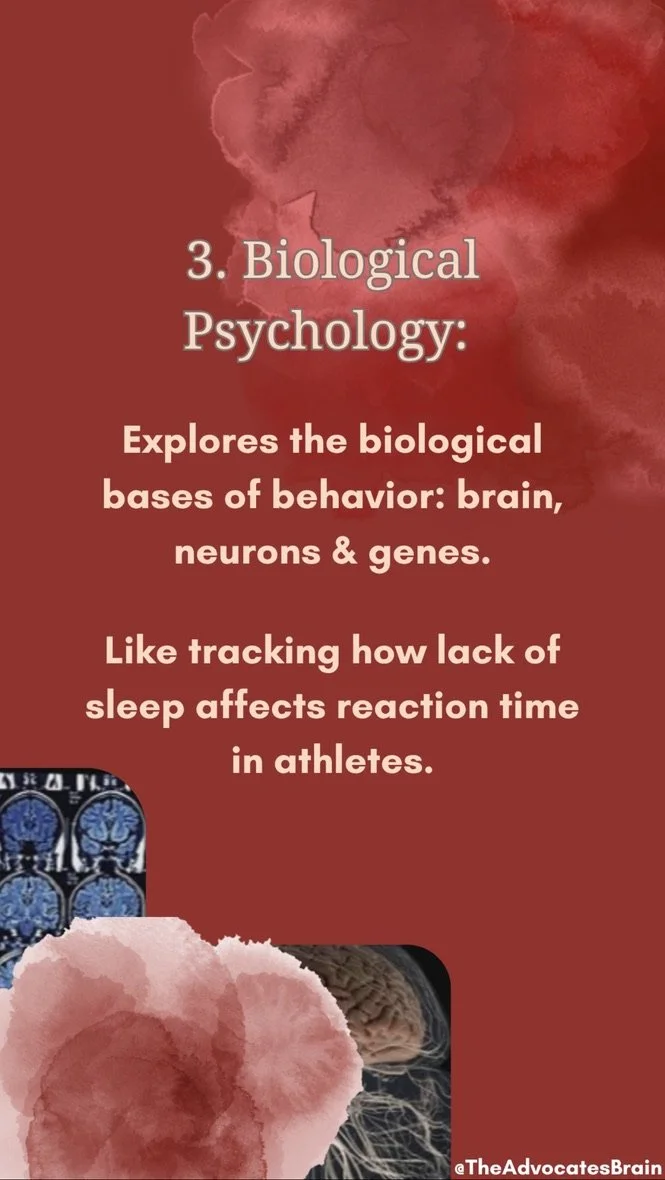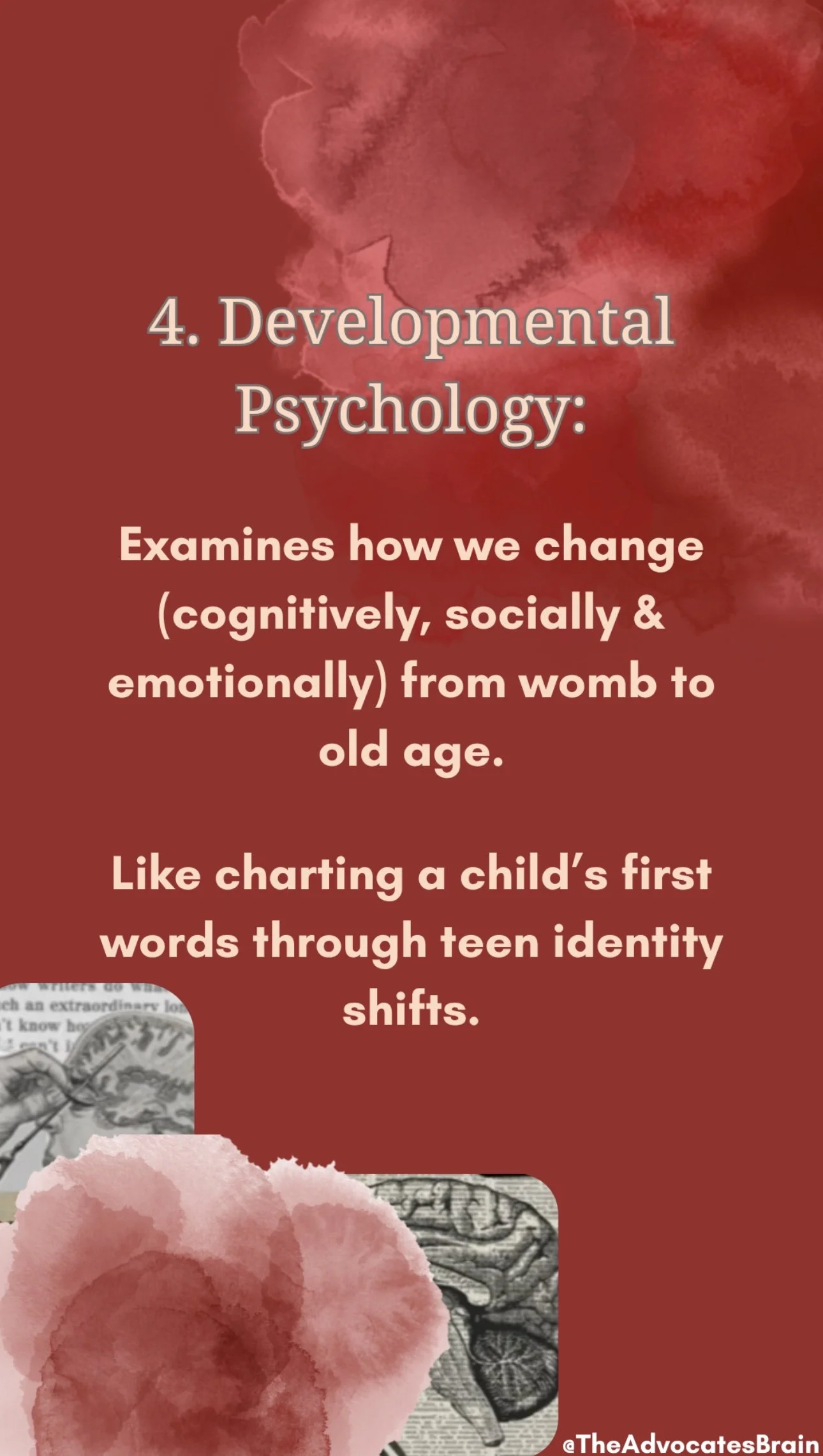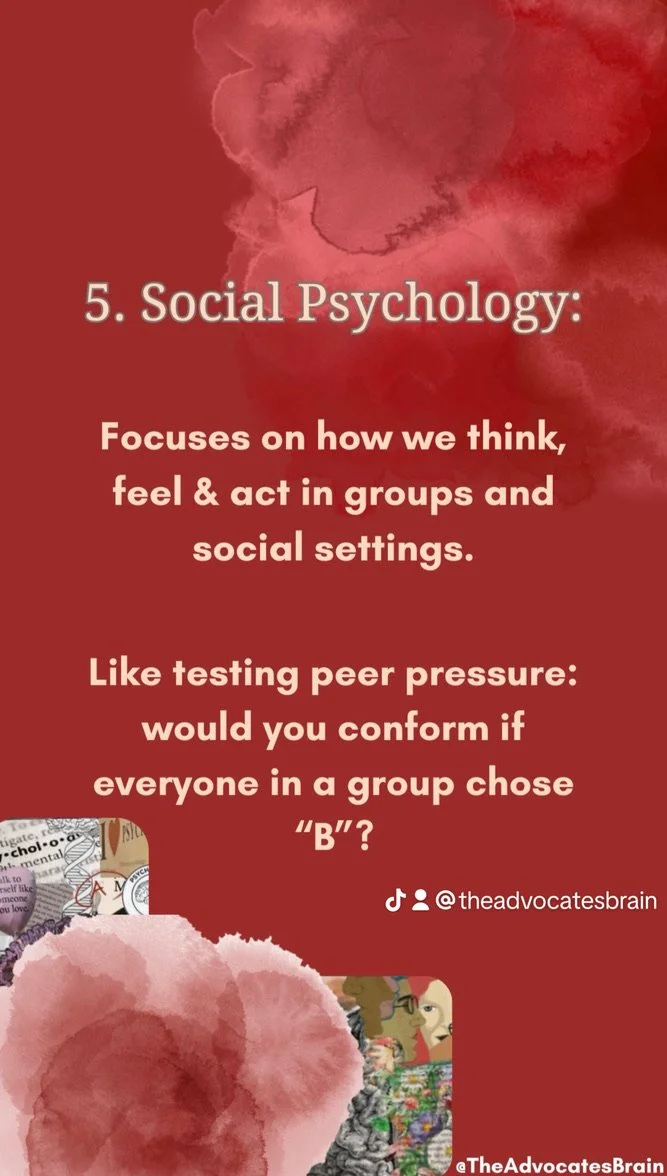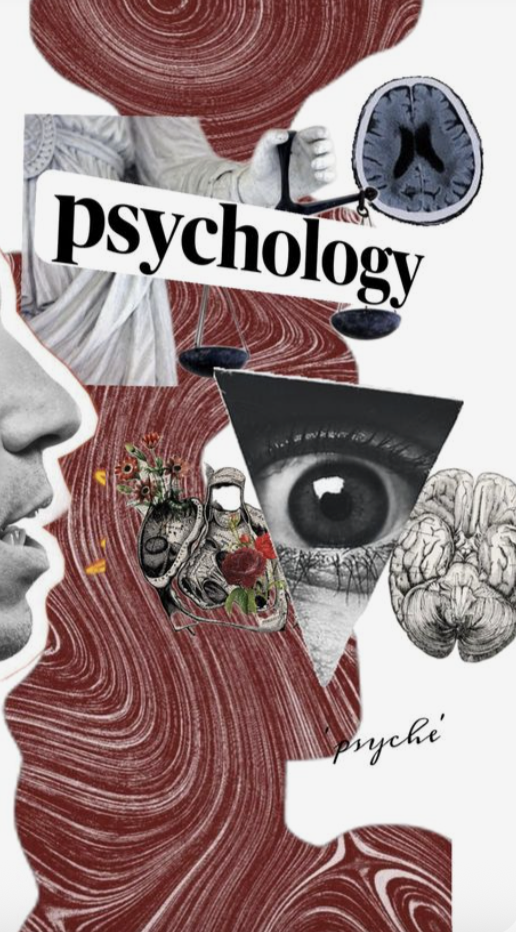Hey, Hey, Hey, curious minds!
Ready to find out what psychology is really about? From brain hacks to social mind-games, this is where it all starts. Let’s dive into the core fields that make up modern psychology!
By the end of this lesson, you’ll be able to:
Name and define the foundational fields of psychology.
Connect each field to real life with relatable examples.
Check your knowledge with quick quizzes and activities.
Reflect on which field interests you most (and why).
First on the chopping block…..
Experimental Psychology
Wait 🤨
Isn’t that where scientists just, like, put people in a lab and make them do weird memory tests or stare at inkblots all day?
Okay, low-key… kinda, but not really. 😅
Experimental psychology is all about using controlled experiments to figure out how our minds actually work. Yes, there are lab coats and sometimes wild brain teasers, but it’s way deeper than just poking people with inkblots or asking them to press buttons for candy.
-
Experimental psychology uses scientific methods (like experiments and data analysis) to study the mind and behavior.
-
Imagine testing whether music improves your focus by having one group study with music and another in silence, then comparing their scores.
Question: What’s something about human behavior you’d love to run an experiment on?
Quick Quiz:
Which best describes experimental psychology?
a) Guessing about behavior
b) Using controlled tests to learn about behavior
c) Only studying animals
(Answer: b)
Photograph: Randy Mora/YCN
Up next….
Cognitive Psychology
Isn’t cognitive psychology just about memory tricks and, like, brain games?
Honestly, you’re not totally wrong…but it’s way more than that.
Cognitive psychology is all about how we process information: thinking, remembering, focusing, and problem-solving. So yeah, it covers stuff like why you forget your password (again), but also how you learn, make decisions, and even how you talk to yourself in your head. No magic required, just your brain being awesome (and sometimes a little chaotic).
-
Cognitive psychology studies mental processes like thinking, memory, attention, and problem-solving.
-
Ever forgotten where you put your keys, then remembered hours later? That’s your brain’s memory and retrieval system at work!
Challenge: Set a 1-minute timer and list as many uses for a paperclip as you can. How many did you get?
Quick Quiz:
Cognitive psychology is mainly about:
a) Feelings
b) The brain’s physical structure
c) Thoughts, memory, and problem-solving
(Answer: c)
Up next….
Biological Psychology (BioPsychology)
Wait, is this the part where we blame everything on our brains? Like, ‘Sorry, I forgot your birthday, my brain has been all over the place lately!”
Kinda!!
Biological psychology is all about how your brain, nerves, and even your genes shape what you do, think, and feel. So yeah, sometimes you can blame your brain chemistry. Just… maybe don’t use that excuse for everything.
-
Biological psychology explores the connection between biology (like your brain and nervous system) and behavior.
-
Why do you feel sleepy after eating Thanksgiving dinner? (Hint: It’s not just the turkey, blame your neurotransmitters!)
Check-In: On a scale of 1–5, how much do you notice your mood change based on what you eat or how much you sleep?
Quick Quiz
Which is the focus of biological psychology?
a) Social influences
b) Brain and body’s impact on behavior
c) Childhood memories
(Answer: b)
TikTok: @jiafeita
Next in line…
Developmental Psychology
So, is this just baby photos and tracking how tall we get?
Not just baby photos, though, who doesn’t love a good glow-up?
Developmental psychology is about all the ways we grow and change, from your first steps to your last midlife crisis. We’re talking about language, emotions, identity, and all the drama — from diapers to adulthood. Spoiler: Yes, there are awkward teenage years, and yes, psychologists study them.
-
Developmental psychology studies how people change and grow across their lifespan (cognitively, emotionally, and socially.)
-
Watching a toddler learn to talk, or tracking how teens handle peer pressure.
Reflect: Share one thing you’ve learned about yourself as you’ve grown up.
Quick Quiz:
Developmental psychologists often study:
a) Just adults
b) Changes from birth to old age
c) Animal intelligence
(Answer: b)
Famous developmental psychologists
-
Jean Piaget’s theory describes cognitive development as a progression through four distinct stages, where children’s thinking becomes progressively more advanced and nuanced.
McLeod, S. (2023). Jean Piaget’s theory of cognitive development. Simply Psychology. https://www.simplypsychology.org/piaget.html
-
Vygotsky saw human development as a social affair. Building on the belief that humans are intrinsically motivated to learn, Vygotsky believed that interactions with more competent peers and elders was a primary method of knowledge acquisition (Vygotsky, 1997).
Resources for Infant Educarers. (n.d.). Lev Vygotsky: How relationships shape our learning. https://rie.org/lev-vygotsky-how-relationships-shape-our-lear/
-
Erik Erikson proposed a lifespan model of development, emphasizing how social relationships shape our sense of self. He suggested we pass through eight stages, each marked by a central conflict, or psychosocial crisis, that must be resolved for healthy personality growth.
McLeod, S. (2023). Erik Erikson’s theory of psychosocial development. Simply Psychology. https://www.simplypsychology.org/erik-erikson.html
NEXT ON THE CHOPPING BLOCK….
soCIAL pSYCHOLOGY
So… this is just studying how we act different when people are watching, right?
That’s part of it!
Social psychology is like the full behind-the-scenes of human interaction. It’s how your brain decides, ‘Yeah, I’ll laugh at that joke I don’t even get,’ or ‘Maybe I’ll change my answer so I don’t look weird.’ It’s the science of how the people around us can completely change the way we think, feel, and act, sometimes without us even noticing.
-
Social psychology explores how people think, feel, and act around others—in groups, teams, and society.
-
Ever found yourself laughing just because your friends are, even if you don’t get the joke? That’s social influence!
Quick Quiz
Social psychology focuses on:
a) Genetics
b) Solo activities
c) Interactions with others
(Answer: c)
Scenario: Would you ever change your answer on a test if everyone else chose something different?
Let’s Do A Knowledge Check!!
Match each field to its focus:
1. Studies memory and thinking
2. Uses experiments to test theories
3. Looks at brain chemistry and behavior
4. Examines life-span growth
5. Focuses on social situations
6. Compares animal and human behaviors
A.Cognitive Psychology
B. Experimental Psychology
C. Biological Psychology
D. Developmental Psychology
E. Social Psychology
F. Comparative Psychology
(Answers: 1A, 2B, 3C, 4D, 5E, 6F)
